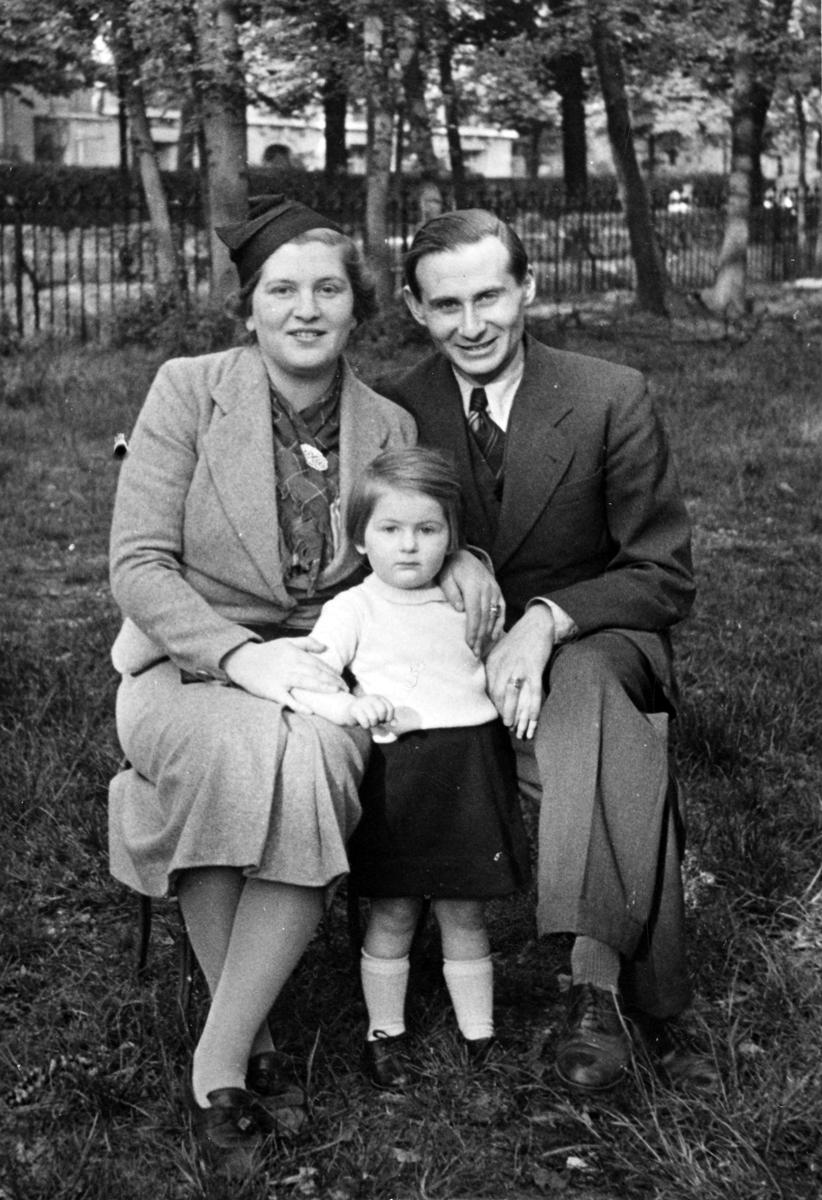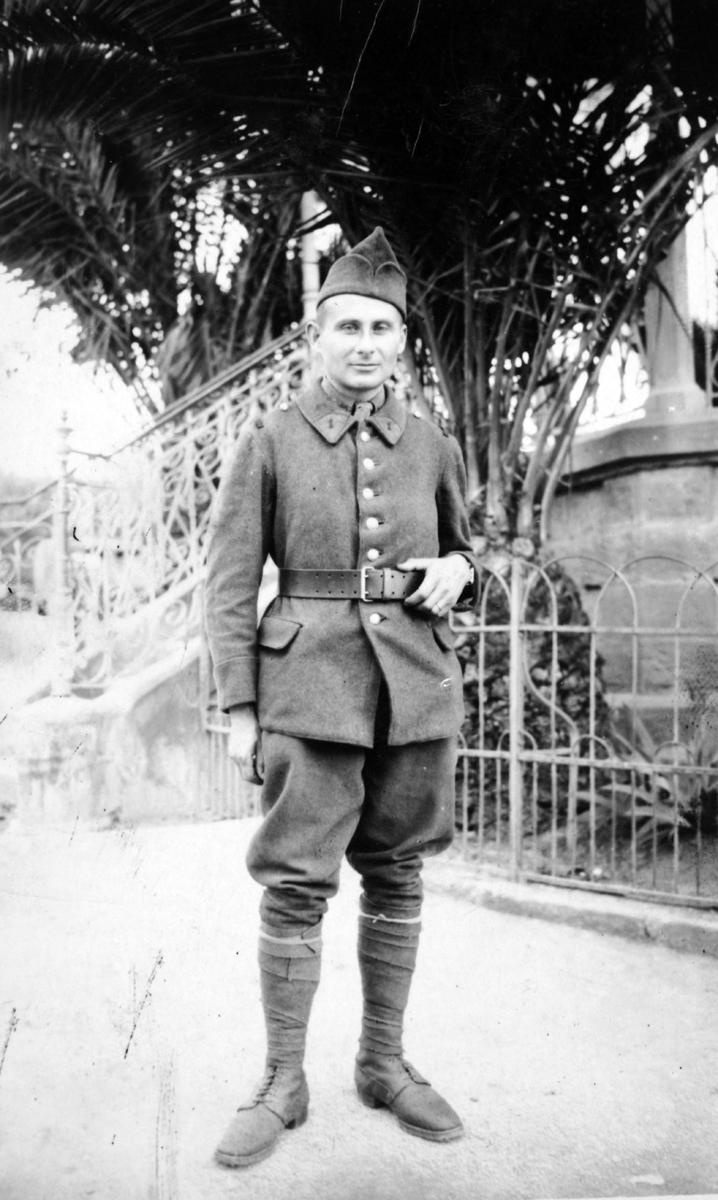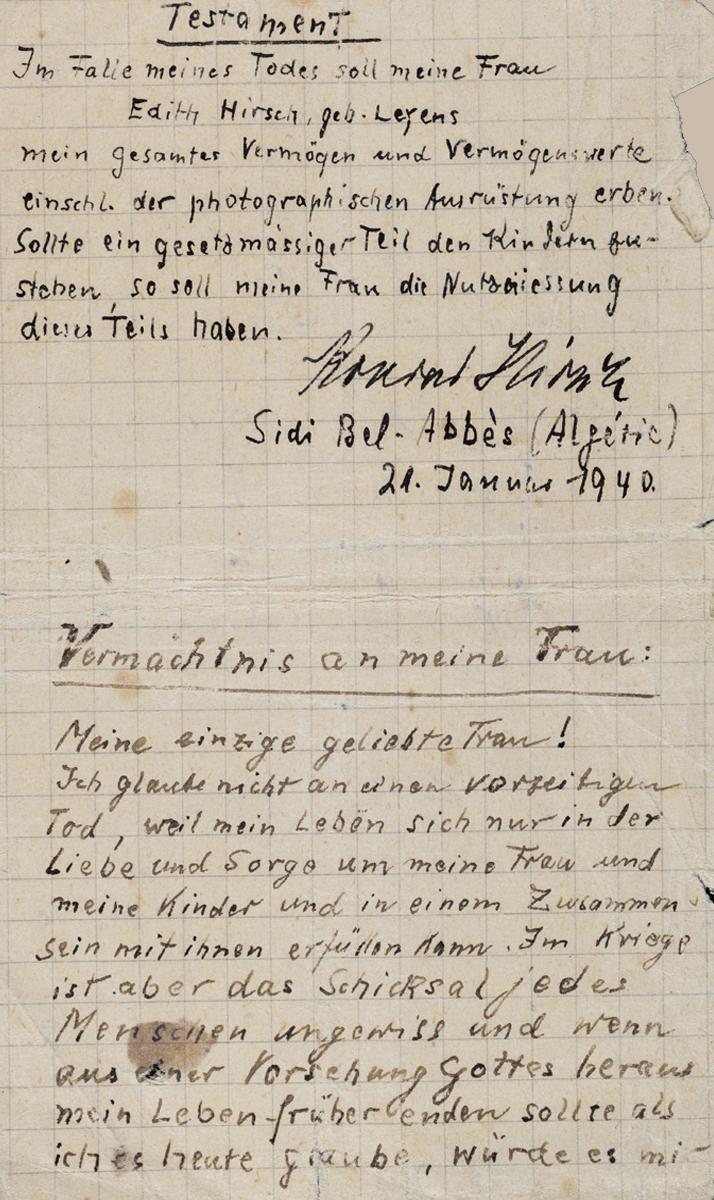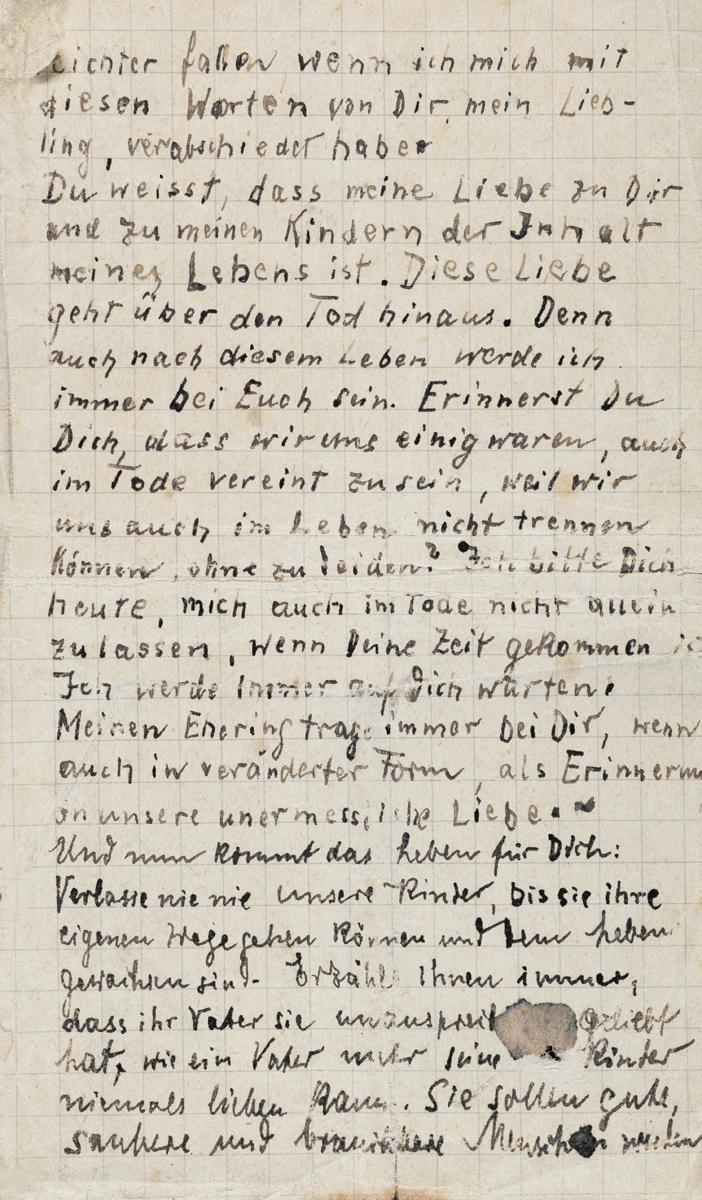
Yad Vashem


Yad Vashem


Yad Vashem


Yad Vashem

“I will always wait for you, wherever I am. My memory will always be with you, in whatever form it takes…
I do not believe in death – because my life is conducted by love…
But in wars – people’s fates are not in their hands…
We will not part – neither in life nor in death…
Always tell the children, that their Daddy loved them so much, as only a father can love his children…”
Thus wrote Konrad Emanuel Hirsch in a will of sorts that he left to his wife and their children in January 1940. Hirsch handwrote these words on a slip of paper during his service in the French Foreign Legion in Algeria, in the event that he did not make it home.
Ultimately, Hirsch did return from Algeria, and was reunited with his wife Edith and their daughter Miriam in Saint Gaultier in southern France. Two years later, he was deported, and wrote a letter to his family: "We are going to an unknown destination. Maintain courage and hope."
The letter and will are part of a collection of documents and photographs donated by Miriam Rosen (née Hirsch) to Yad Vashem. The collection features correspondence, documents and photographs that outline Rosen's childhood in the south of France, and her life in a children's home after the war. They tell the story of a girl who grew up in the shadow of war, through her experiences as a refugee, in hiding and under a false identity, as well as the resourcefulness of her parents during this difficult period.
Helga-Yvonne-Miriam Hirsch was born in Paris in 1934. Her triple name reflects three periods of time in her life: as a German, in France, and in the Jewish state.
With the Nazis’ rise to power, Konrad Emanuel and Edith Hirsch understood that their future lay beyond the borders of Germany. The two underwent “professional retraining,” and acquired skills they hoped would help them acclimatize better in another country: Konrad Emanuel trained as a photographer and Edith as a chocolatier. They ultimately chose to journey to France, and settled in Paris. There, Konrad Emanuel specialized in taking pictures of the children of established professionals in the city. It was during this period that their two children were born: Miriam and René Pierre Mordechai. Their father often took pictures of them at the end of his work day, and so the collection includes many photographs that show Miriam as a happy young girl.
During the 1930s, with the expansion of the racist decrees against German Jewry, the Hirsch's extended family also left Germany, with some settling in British Mandatory Palestine. However, Miriam’s grandmother, Clara Lanes, remained in Berlin. From correspondence between family members in the collection, it is clear that Edith Hirsch, Lanes’ daughter, tried to bring her mother to France with the assistance of the Red Cross, but her efforts were in vain. Lanes was eventually deported to Theresienstadt and from there to Majdanek, where she was murdered in 1942.
Following the German invasion of France, and with her husband serving with the Foreign Legion in Algeria, Edith Hirsch found herself alone with her children in occupied Paris. Understanding the increasing danger to her family, she paid a driver to take her family into the southern unoccupied zone of France, amid an influx of refugees. While on their way, German bombings intensified and the convoy was forced to stop. Edith told her children to lie flat and pray in French and German, as she believed this was their end. After the bombings ceased, most of those around them had been killed.
Edith and her children were accepted as refugees in the town of Saint Gaultier, where Konrad Emanuel joined them upon his return from Algeria. Despite the family’s difficult living conditions, Miriam remembers many happy moments from this period with her father, such as riding a bicycle to obtain agricultural produce or her father's explanations of the stars in the sky. At the same time, Konrad Emanuel found a job repairing the roads damaged by the bombings and organized a makeshift farm for himself and his family.
In February 1943, local police officers arrived and arrested Konrad Emanuel. He went with them, despite his wife's pleas, and although he was given an opportunity to escape, based on the understanding of Miriam and Edith. Konrad Emanuel was transferred to the Gurs detention camp and kept in touch with his family through letters. A month later, in March, he was deported to Drancy. After the war, the family discovered that the unknown destination he referred to in his last letter was Majdanek, where he was murdered.
After her husband's arrest, Edith acted quickly: She organized a hideout for her children and obtained forged identification papers. She went to Lyon, to live under an assumed identity with her brother-in-law, Hans. Following a letter from Miriam to her mother complaining of the lack of care in their first place of refuge, the children lived for some 18 months on a farm in Saint Gaultier owned by Suzanne Morand-Baron, who was later recognized as Righteous Among the Nations. Morand-Baron was devoted to them, and Miriam remembers her and the farm experience warmly – among her recollections are her brother playing with rabbits in the yard. At one point, fearing the loss of their Jewish identity, Edith sent Hans to pick up the children bring them to her in Lyon. The separation from Morand-Baron was difficult for the children.
The Hirsch family, now known by their false last name, Martin, was in Décines at the time of liberation. At this point, Edith and her two children moved to a Jewish children's home in Érondelle, run by M. and Mme. Samuel. There Edith assisted in the preparation of the students, most of them Polish orphans, for immigration to Israel. The Hirsch collection includes many photos, poems and writings in a book of memoirs depicting life in Érondelle as well as the Samuels themselves.
In March 1948, the family arrived in Israel aboard the Sirenia. Miriam married Shmuel Rosen, and they named their eldest son Emanuel, after Miriam’s father.
"All of these letters, documents and photos are of great historical value," said Miriam in a recent interview. "The experiences of Jews in France during the war is less well-known to the public, compared to what happened in Poland, Hungary and other places. I knew that it was not possible to guarantee that this material would be kept secure if it remained in the possession of my family. It was clear to me that Yad Vashem is the right place for them to be preserved properly, and for my story to be told to the world."
"Gathering the Fragments" is a national operation to collect and document personal items from the Holocaust period. As part of the project, Yad Vashem representatives travel to city centers for intensive collection days. If you are in possession of documents, photographs, objects or any other item from the Holocaust period, you are welcome to come to a collection day and donate the item and its story to Yad Vashem, so that it can be restored as required and preserved for future generations. For coordination of delivery outside the framework of the collection days, please contact us at 02-6443888 or collect@yadvashem.org.il.










